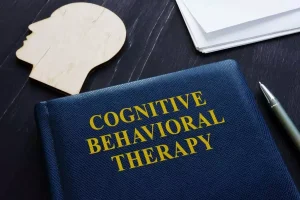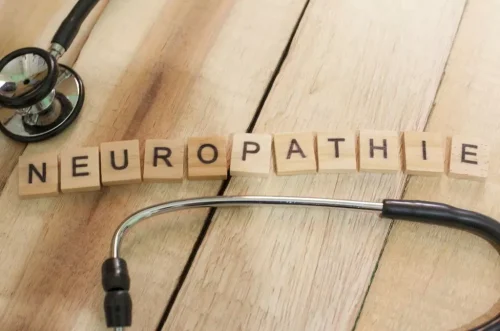Overview of Alcohol Consumption National Institute on Alcohol Abuse and Alcoholism NIAAA

Such e-health tools have been shown to help people overcome alcohol problems. Your health care provider can help you evaluate the pros and cons of each treatment setting. Just like any other medical condition, people with substance use disorders deserve to have a range of treatment options available to them. Scientists are working to develop a larger menu of pharmaceutical treatments that could be tailored to individual needs. Many people who seek treatment are able to overcome the addiction.

Duration of Alcohol Use Disorder

The trillions of microbes in your colon and large and small intestines are critical to proper digestion. They also help fend off inflammation and support healthy metabolism. That’s because your body already has processes in place that allow it to store excess proteins, carbohydrates and fats. So, your system prioritizes getting rid of alcohol before it can turn its attention to its other work.
- Your doctor or healthcare provider can diagnose alcohol use disorder.
- Residential treatment programs typically include licensed alcohol and drug counselors, social workers, nurses, doctors, and others with expertise and experience in treating alcohol use disorder.
- They should also have proactive strategies to avoid dropping out, involve the family in treatment, employ qualified and certified staff, and be accredited by an external regulatory organization.
- Listen to relatives, friends or co-workers when they ask you to examine your drinking habits or to seek help.
Residential treatment programs
Named after the famous writer Ernest Hemingway, you might not act drunk even if you’ve had a lot to drink. Alcohol won’t have a large effect on your general personality. Make sure your loved one will be there but isn’t aware of what’s going on. But they should be people your https://ecosoberhouse.com/ loved one respects and likes. Working with an addiction or intervention specialist can often be helpful, but some people arrange interventions on their own without professional help. Without realizing it, you could take risks that could put yourself or others in harm’s way.

Why Should We Be Concerned About AUD and Alcohol Addiction?

If you’re worried about a loved one’s drinking habits, you may want to think about doing an intervention. This is a face-to-face talk where you’ll lay out examples of their harmful behavior and suggest a specific treatment plan. You, and everyone else who’s present, will also share what you’ll do if the person refuses to get treatment.
How can I help someone with an addiction?
Couples and family counseling incorporates spouses and other family members in the treatment process and can play an important role in repairing and improving family relationships. Studies show that strong family support through family therapy increases the chances of maintaining abstinence (not drinking) compared with people going to individual counseling. Motivational enhancement is conducted over a short period of time to build and strengthen motivation to change drinking behavior. Symptoms of alcohol use disorder are based on the behaviors and physical outcomes that occur as a result of alcohol addiction. Alcoholism, referred to as alcohol use disorder, occurs when someone drinks so much that their body eventually becomes dependent on or addicted to alcohol.
- It affects people differently but can become life-threatening very quickly.
- Drinking an extreme amount of alcohol, also known as alcohol poisoning, can be fatal.
- Getting support from others is often extremely helpful in getting and staying sober.
- That’s because alcohol can weaken your immune system, slow healing and make your body more susceptible to infection.
- For many, continued follow-up with a treatment provider is critical for overcoming alcohol problems.
Your days probably revolve around drinking and when you’ll have your next drink. If you try to cut back, you could feel physically sick or have psychological symptoms, such as hallucinations. Over time, drinking excess alcohol can change areas of your brain, including one that senses pleasure and another that helps with self-control.
Webinar: Women, men and alcohol: Why is gender important in alcohol control policies
WHO has long recommended marketing restrictions in the contexts of tobacco and nicotine products, alcoholic beverages, foods and beverages with respect… With the widespread use of kratom and its ready availability at gas stations and on the internet, we need to better understand this drug’s potential benefits and adverse effects. Find a treatment center using the Psychology Today Therapy Directory. A .gov website belongs to an official government organization in the United States.
- Alcohol is the leading risk factor for premature mortality and disability among those aged 20 to 39 years, accounting for 13% of all deaths in this age group.
- In many of today’s societies, alcoholic beverages are a routine part of the social landscape for many in the population.
- Supportive friends, family members and healthcare providers play an essential role in effective treatment as well.
Although you usually feel shy or quiet when sober, alcohol makes you much more extroverted, like the life of the party. That includes what you’ll do if the intervention doesn’t change your loved one’s mind. Once you’ve suggested treatment, tell them you need their answer right away. If they agree to get help, you’ll need to make sure they can start immediately. Otherwise, they could back out or go on a last drinking binge.
How do I take care of myself?
- There are many organized programs that provide the support of peers, usually through frequent meetings.
- Although the exact cause of alcohol use disorder is unknown, there are certain factors that may increase your risk for developing this disease.
- Your answers can help a doctor understand if you have AUD, and whether it’s mild, moderate, or severe.
- For instance, you might miss important family events or meetings with co-workers because you’ve been drinking.
- The newer types of these medications work by offsetting changes in the brain caused by AUD.
- Be open with others about what you’re experiencing so they can support you as you work to become sober.
If you or someone you care about may have an addiction, talk to your provider right away. For some substances, such as opioids, the withdrawal symptoms are so severe that they create significant motivation to continue using them. Over time, the substances why do people become alcoholics or activities change your brain chemistry, and you become desensitized to their effects. There’s not a single cause of addiction — it’s a very complex condition. A significant part of how addiction develops is through changes in your brain chemistry.